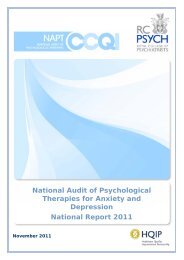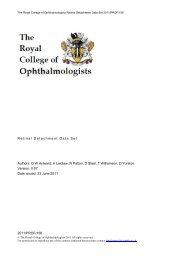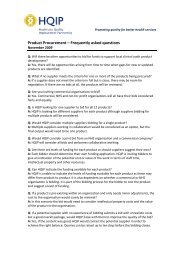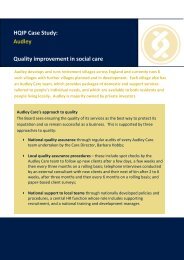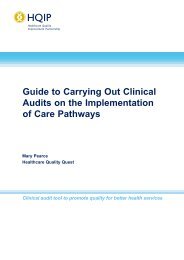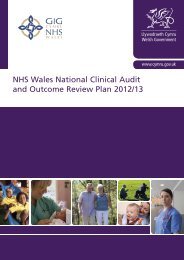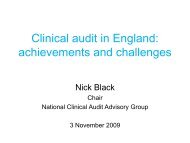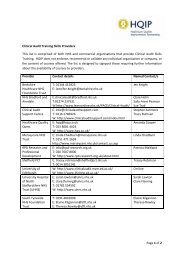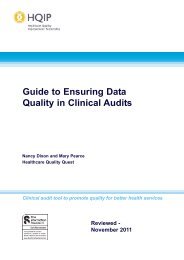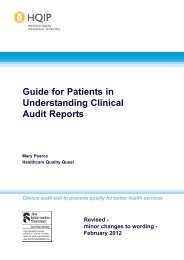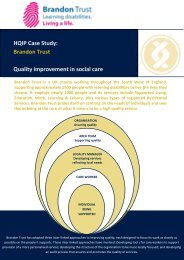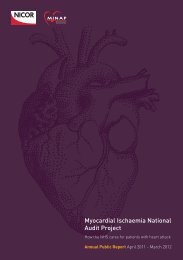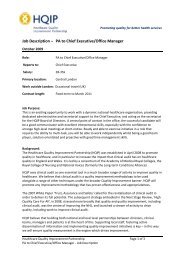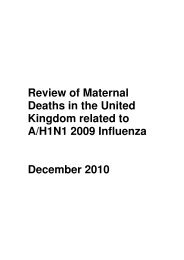Good Governance Handbook - HQIP
Good Governance Handbook - HQIP
Good Governance Handbook - HQIP
You also want an ePaper? Increase the reach of your titles
YUMPU automatically turns print PDFs into web optimized ePapers that Google loves.
• Quality committee – usually established to help the board develop and<br />
understand service quality issues. On occasions the committee may test the<br />
quality approach by ‘deep-dive’ type interest in areas of service quality. The<br />
aim of this committee is to ensure that the board mainstreams consideration<br />
of service and clinical issues over time. ‘Quality governance’ has been coined<br />
by Monitor to refer to the Board’s leadership on quality and their ability to<br />
understand the relative quality of services their Trust provides; identify and<br />
manage risks to quality; act against poor performance; and implement plans<br />
to drive continuous improvement. In an environment of tighter public finances<br />
and the need to make significant efficiency savings, it is crucial that all Boards<br />
of NHS organisations are able to identify and manage risks to the quality of<br />
their services in the same way they would their financial position.<br />
• Task and finish groups – these ad hoc groups will be set up by the board to<br />
take on a delegated, specific and time-limited responsibility, usually around a<br />
particular task or to provide the board with specific advice. This might include<br />
financial or performance turnaround, adoption of a new status or regulatory<br />
regime or consideration of mergers and acquisitions.<br />
Why it is important<br />
Governing boards need to formally agree in and transparent way what role they will<br />
take in the detailed direction of an organisation. This will be different for each<br />
organisation and dependent on the level of risk, market forces, the detailed<br />
knowledge required to undertake particular tasks and the maturity of management.<br />
The controlling mind of the organisation needs to plan and be explicit about the level<br />
of direction it will need to exert itself, and that which it is comfortable to discharge to<br />
others, both within and outside the organisation. This will help other stakeholder<br />
assess risk and control for themselves.<br />
The board must be clear in the role and delegated authority of committees, and<br />
indeed the use of the term ‘committee’ which we suggest is overused in the NHS. It is<br />
unnecessary to include non-governance committees in the Trust organogram of<br />
governance structures and a clear distinction must be made between board<br />
committees and management groups.<br />
<strong>Governance</strong> principle 7: Openness and transparency<br />
Organisations should have the confidence that their business and decision-making<br />
processes would stand exposure to the public eye. This ensures that organisations<br />
meet important legal and compliance requirements, as well as fosters good business<br />
practice through building reputational and brand value. Decisions and conduct should<br />
be auditable and explainable. A new duty of candour is to be imposed on all NHS<br />
organisations, which will include a requirement for boards to meet in public and for<br />
any service failings to be dealt with in an open and transparent manner.<br />
www.good-governance.org.uk 14



